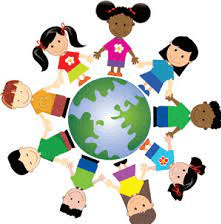
Social Development: Nurturing Progress for a Thriving Society
- 0
Introduction
Social development is a crucial aspect of human growth that influences individuals, communities, and societies at large. In this article, we will delve into the significance of social development, its impact on various aspects of life, and how nurturing it can lead to a thriving and harmonious society. Join us as we explore the key elements of social development and its role in shaping a better world for everyone.
Section 1: Understanding Social Development
1.1 What is Social Development?
Social development refers to the process of building and nurturing interpersonal relationships, cultural values, and social cohesion within a society. It encompasses the growth of individuals’ social skills, emotional intelligence, and capacity for empathy, contributing to a well-connected and resilient community.
1.2 Why is Social Development Important?
Social development is essential for fostering positive human interactions, reducing conflicts, and promoting inclusive societies. It plays a pivotal role in improving mental well-being, academic achievements, and overall quality of life for individuals and communities.
Section 2: Key Elements of Social Development
2.1 Emotional Intelligence: Building Empathy and Understanding
Emotional intelligence is a fundamental aspect of social development. By nurturing empathy and understanding, individuals can develop stronger connections with others, leading to healthier relationships and improved communication.
2.2 Communication Skills: Fostering Effective Dialogue
Effective communication is vital for social development. Strong communication skills facilitate the sharing of ideas, resolving conflicts, and creating an inclusive environment where diverse voices are heard and valued.
2.3 Social Skills: Navigating Human Interactions
Social skills encompass various abilities, such as active listening, cooperation, and conflict resolution. Developing these skills enables individuals to navigate social situations with confidence and respect for others’ perspectives.
Click here to Sassa Status Check.
Section 3: The Impact of Social Development
3.1 Community Cohesion: Strengthening Bonds
Social development contributes to community cohesion by fostering a sense of belonging and shared identity. A united community is better equipped to address challenges collectively and celebrate achievements together.
3.2 Academic Success: Enhancing Learning Experiences
Positive social development enhances students’ learning experiences by promoting collaboration, teamwork, and a positive classroom atmosphere. This, in turn, can lead to improved academic performance and overall educational outcomes.
3.3 Mental Well-being: Supporting Emotional Resilience
A socially developed society provides a supportive environment that helps individuals cope with stress and emotional challenges. Strong social connections act as a buffer against mental health issues and promote overall well-being.
FAQs
Q1: How can social development benefit marginalized communities?
A1: Social development plays a significant role in empowering marginalized communities by promoting inclusivity, respect for diversity, and equal opportunities. It helps bridge gaps between different social groups, fostering understanding and cooperation.
Q2: What role does social development play in conflict resolution?
A2: Social development encourages effective communication and conflict resolution skills, facilitating peaceful dialogue between conflicting parties. It promotes a culture of tolerance and empathy, which can help deescalate tensions and build sustainable peace.
Q3: How can individuals contribute to social development?
A3: Individuals can contribute to social development by actively participating in community initiatives, volunteering, and supporting social causes. By demonstrating empathy and compassion, individuals can inspire positive change within their circles of influence.
Conclusion
Social development is the foundation for building a harmonious and thriving society. Through nurturing emotional intelligence, effective communication, and strong social skills, individuals and communities can create a more inclusive and compassionate world. Socially developed societies not only experience academic success and mental well-being but also foster a sense of belonging and unity among their members. Let us embrace the power of social development and work together to create a brighter future for everyone.

